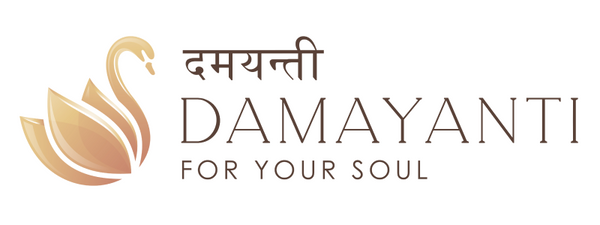Statements that encapsulate the path to freedom and happiness have been spoken countless times over the millennia, in countless ways, and in countless languages. “Love your neighbour as yourself”, “This, above all, to thine own self be true”, “Be still, and know that I am God”, “This indwelling Self is the Limitless Universal Self”. These beautiful statements, if remembered, contemplated, and put into practice will lead to a deeper and deeper understanding of the truth of who you are, which is a limitless being woven of knowledge, consciousness, light and purity. There is a simple, practical three step process to gaining this understanding of the truth about yourself.
The first step is to choose one of these simple statements of universal truth. The second step is to engage with your desire to step free of limitation, and to form a resolve to enact the wisdom in that statement. This engages the ‘will’, the motivational energy to set out on the path to freedom. The third step is to actually get moving, to put into practice the advice and wisdom of the ancient sages, and to follow through on this with patient application.
This three-step process is, in fact, true of all learning. The acquisition of the knowledge and understanding of anything - a foreign language, a sport, a cooking technique –needs the same process: advice and guidance from someone who has already mastered the skill, a resolve to attain ultimate mastery, and patient application, discipline and effort for the time it takes to achieve success. The way to limitlessness and higher consciousness follows the same process.
The challenges are the same as well. First, you need to find someone who has done the work and walked the path already. That person needs to have a little something extra. This is the ability to synthesise and formulate their experience in a way that can connect with a novice. This is not as easy as it sounds. How many times have we met someone, an expert in their field, who has ‘the curse of knowledge’? They know too much. Their ability to communicate, to teach, seems hampered by their abundance of information. They find it hard to step into the shoes of someone who knows little or nothing of their topic.
A wonderful friend of mine, who is a brilliant teacher, used to say that the mark of a true expert is the ability to explain their subject to a four-year-old. Many of us are like children when it comes to setting out on a course of study. So finding a teacher with the requisite knowledge and experience, who also has the gift of communicating that knowledge simply and effectively, is the first challenge.
Fortunately, these days, there are abundant courses and teachers available to us. We just need to find something that ‘speaks to us’.
The second issue relates to the realm of resolution. The English word ‘resolution’ carries connotations of decision, focus and will. In Sanskrit this is known as sankalpa (संकल्प), a word which contains all of these meanings.
Sankalpa also has an added layer of emotional connection, a heartfelt desire, a solemn vow, an intention, or a determination to do something. San carries the sense of connection or union with the highest truth, and kalpa means a vow, an oath or a promise. Thus, a true resolution or sankalpa is a solemn undertaking, a promise to fulfil some action or achieve some goal. It is a promise you make to your highest Self.
There is a seriousness to this form of undertaking. The wise tell us that when such an undertaking is given, then the forces of the universe gather to help and guide us. We experience energy and support that helps carry the undertaking through to completion. It is as if the sankalpa itself, the making of a promise to your highest Self, unlocks these forces. Opportunities are presented, and pathways open up to the achievement of the goal of the sankalpa.
This help, however, does not necessarily make things easy for us. Sometimes the best way to overcome an obstacle is to face and surmount it. If, for example, you make a resolution to speak truthfully, you may find yourself in situations where that resolution is tested, where you are required to have a hard conversation with a friend or colleague.
I know a man who, in his professional life, was in a position of authority in his organisation. He was a brilliant leader and manager, and was known for his integrity and ability to deal with the many challenges of his job. He was also a meditator and under spiritual discipline. As part of his spiritual journey he made a sankalpa, a resolution to be truthful in his speech. Not only for his own benefit, but also for those for whom he was responsible. He told me of an incident which tested his resolution and which, ultimately strengthened it.
It became clear to him that one of his employees, a valued member of the team, had been assigned a task which was beyond their abilities. My friend had to intervene and reassign the employee. This was not going to be a happy conversation and my friend delayed. He was however, reminded of his resolution, his sankalpa, when a member of the HR department took him aside and said: “Every day you delay in reassigning this team member, is a day you have stolen from their future. You are delaying their time to settle into their new role and to get on with the new phase in their life.”
My friend accepted this advice, and was in fact grateful for the rebuke, and acted immediately. Everyone benefited. The employee flourished in their new role. He told me that, aside from these practical benefits, he realised the universe had tested the sincerity of his sankalpa. He was incredibly thankful that the universe had turned up in the guise of his HR manager.
The practical tip here is to make a resolve, a sankalpa. Perhaps you might resolve to walk the spiritual path, or to meditate daily, or to be honest and straightforward in all your dealings, or to remember that everyone you meet carries a spark of the divine. Then be ready to show both courage and gratitude if and when the universe tests you.
This leads us to the third element in our three-step process.
After finding a source of wisdom and studying their teachings, and having resolved to put that teaching into practice, the third element to success is sticking at it, to persevere.
We need to persevere because time has a part to play here. How much time does it take to become an expert in your chosen field? How long does it take to learn the violin? How many days, weeks or years to become a competent chef? When do you cease to be a learner, and become a skilful practitioner and ultimately a master teacher?
The answer is obvious. It depends.
There is a well-known trope known as ‘the 10,000 hour rule’ which suggests that keeping at something for an extended period of time – 10,000 hours – will lead to mastery. This may be so, but the research, and common sense, shows that mindless repetition, no matter how long you keep at it, will not lead to much advancement in learning. There are other factors involved.
There are emotional factors such as motivation, inspiration, love of the area of study, admiration for your teacher, and the desire to please them and make them proud of you. There are mental factors such as memory, focus, application of reason and the ability to problem solve. There is even research that shows that mentally repeating what you have learnt, visualising it, and visualising success has a measurable effect on learning. Stamina, the strength and ability to stick at something, can play a part as well. This is where perseverance comes in.
There are many Sanskrit words for ‘perseverance’. Two in particular help us here. The first is abhinivesha which carries a sense of application, intentness and devotion. It has an emotional dimension of entering into something fully, a full commitment to an undertaking. The other word is vyavasthiti which comes from the root form sthā, meaning to stand, be steady, unmoving. So vyavasthiti means steadfastness and constancy. Taken together these two words show us that true perseverance means to fully immerse ourselves and commit to a course of action or study, and also sticking to it steadfastly.
Thus, having found a source of wisdom, and having resolved to undertake the teaching that they expound, we follow through on that resolution, that sankalpa, with determination and steadfast perseverance. With this threefold process, there is no doubt that we will find ultimate success on the path to freedom, happiness and limitlessness.

